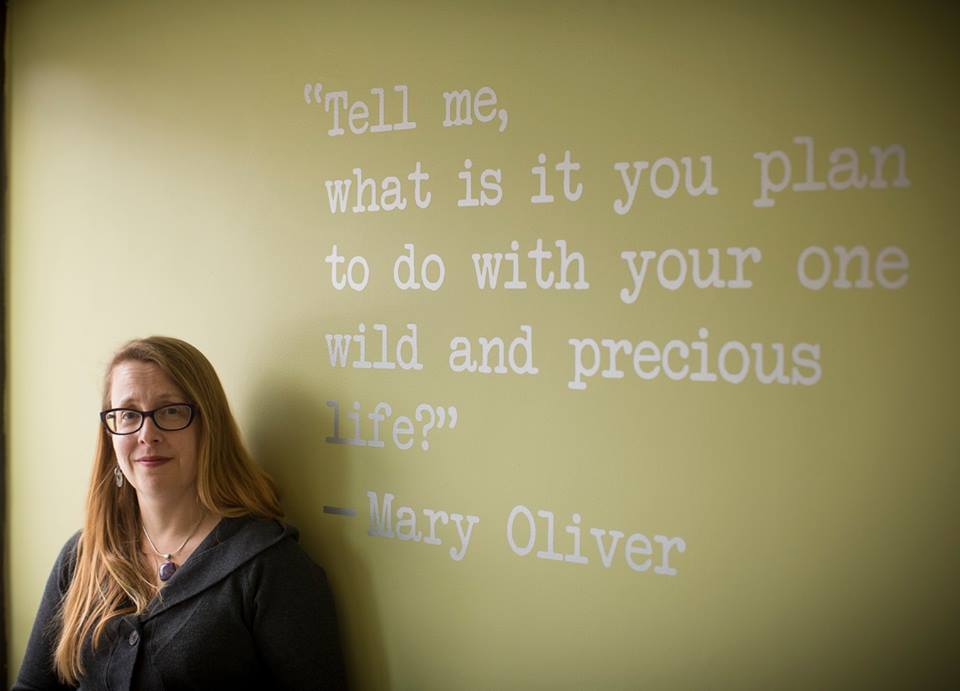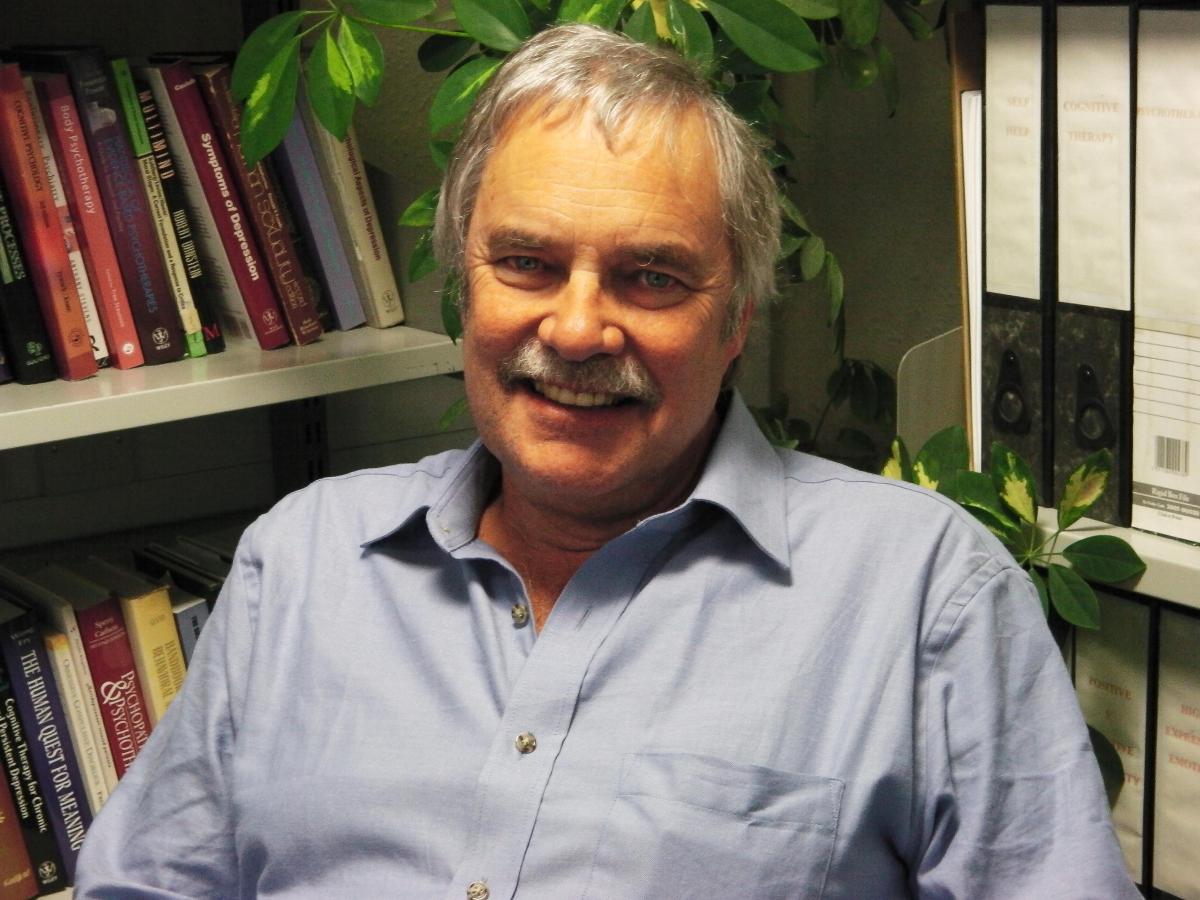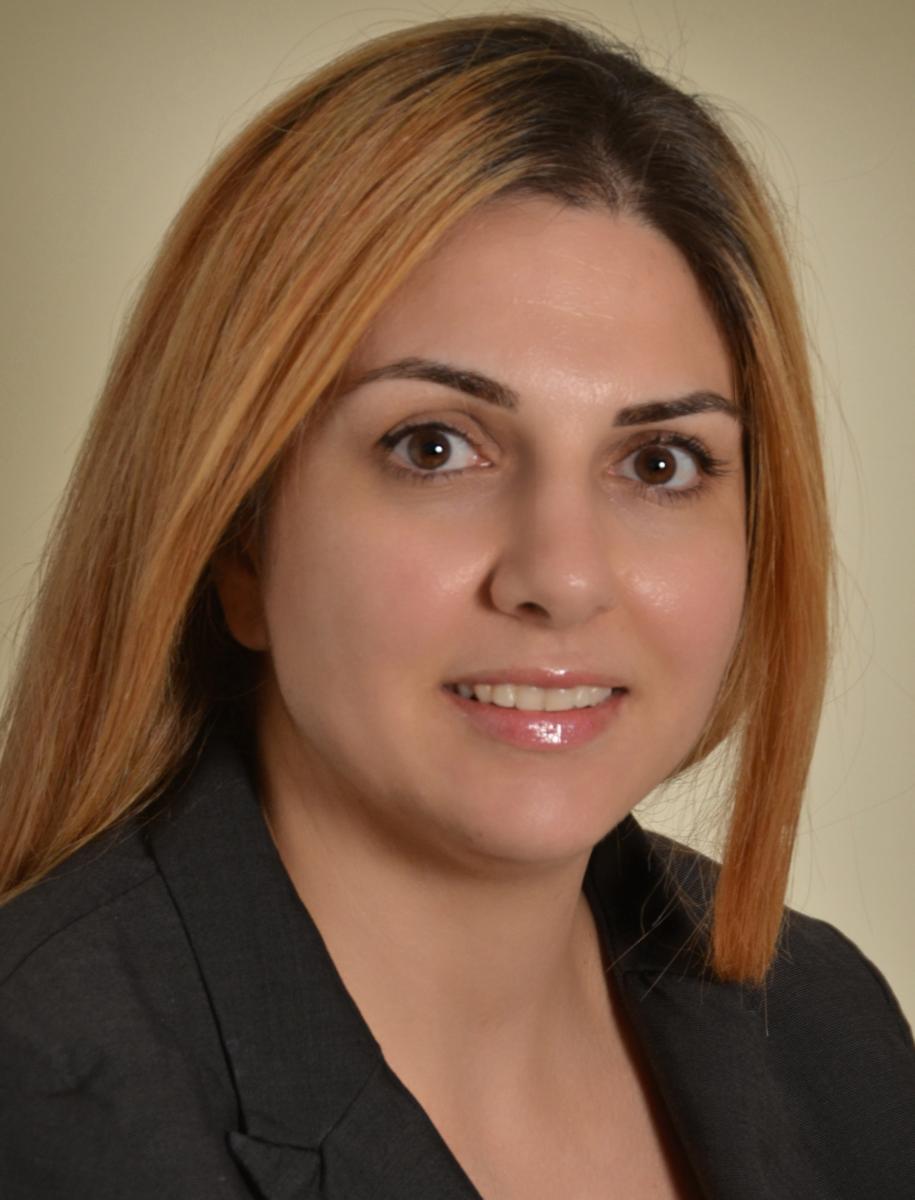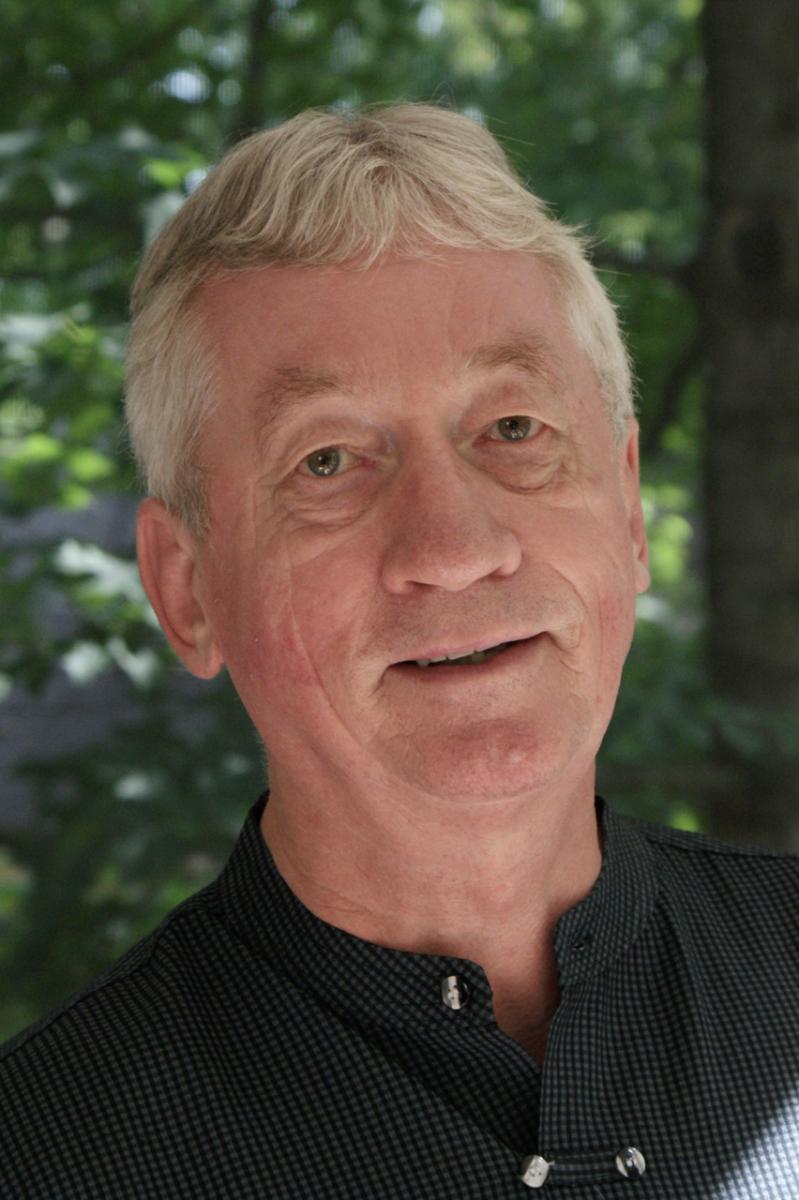 Dermot Barnes-Holmes, D.Phil.
Dermot Barnes-Holmes, D.Phil.
Dr. Dermot Barnes-Holmes graduated from the University of Ulster in 1985 with a B.Sc. in Psychology and in 1990 with a D.Phil. in behavior analysis. His first tenured position was in the Department of Applied Psychology at University College Cork, where he founded and led the Behavior Analysis and Cognitive Science unit. In 1999 he accepted the foundation professorship in psychology and head-of-department position at the National University of Ireland Maynooth. In 2015 he accepted a life-time senior professorship at Ghent University in Belgium. Dr. Barnes-Holmes is known internationally for the analysis of human language and cognition through the development of Relational Frame Theory with Steven C. Hayes, and its application in various psychological settings. He was the world's most prolific author in the experimental analysis of human behavior between the years 1980 and 1999. He was awarded the Don Hake Translational Research Award in 2012 by the American Psychological Association, is a past president and fellow of the Association for Contextual Behavioral Science, is a fellow of the Association for Behavior Analysis, International, is a recipient of the Quad-L Lecture Award from the University of New Mexico and most recently became an Odysseus laureate when he received an Odysseus Type 1 award from the Flemish Science Foundation in Belgium.
 Lisa W. Coyne, Ph.D.
Lisa W. Coyne, Ph.D.
Dr. Coyne is the Founder and Director of the McLean OCD Institute for Children and Adolescents at McLean Hospital, and is on the Faculty of Harvard Medical School. She is a Research Associate Professor in the Clinical Psychology Doctoral Program at Suffolk University in Boston, Massachusetts, and is on the Faculty of the Behavior Therapy Training Institute (BTTI) of the International OCD Foundation (IOCDF). She is also a licensed psychologist and an internationally recognized ACT trainer with extensive experience using ACT with young people with OCD and their families.
 Paul Gilbert, Ph.D.
Paul Gilbert, Ph.D.
Psychology at the University of Derby and Consultant Clinical Psychologist at the Derbyshire Health Care Foundation Trust. He has researched evolutionary approaches to psychopathology over 40 years with a special focus on shame and the treatment of shame based difficulties - for which compassion focused therapy was developed. He was made a Fellow of the British Psychological Society in 1993. In 2003 Paul was president of the BABCP and a member of the first British Governments’ NICE guidelines for depression. He has written/edited 20 books and over 200 papers, and spoken on TV and radio In 2006 he established the Compassionate Mind Foundation as a charity with the mission statement To promote wellbeing through the scientific understanding and application of compassion (www.compassionatemind.co.uk). He was awarded an OBE by the Queen in March 2011.
 Steven C. Hayes, Ph.D.
Steven C. Hayes, Ph.D.
Steven C. Hayes, Ph.D., is Nevada Foundation Professor in the Department of Psychology at the University of Nevada, Reno. He has served as president of multiple scientific and professional organizations, including the Association for Behavioral and Cognitive Therapies (ABCT) and the Association for Contextual Behavioral Science. His work has been recognized by the Award for Impact of Science on Application from the Society for the Advancement of Behavior Analysis and the Lifetime Achievement Award from the ABCT, among other awards. The author of 41 books and over 575 scientific articles, Dr. Hayes has focused on understanding human language and cognition and applying this understanding to the alleviation of human suffering and the promotion of human welfare.
 Maria Karekla, Ph.D.
Maria Karekla, Ph.D.
Maria Karekla, Ph.D., licensed clinical psychologist and Assistant Professor, University of Cyprus is heading the “ACTHealthy: Anxiety disorders and Behavioral Medicine” laboratory. She received her doctorate degree in Clinical Psychology from the University at Albany, SUNY. She completed her residency at the University of Mississippi Medical Center and Veterans Administration Hospital. Currently holds the position of Assistant Professor of Clinical Psychology at the University of Cyprus and is the chair of the Clinical Psychology Doctorate committee. Her research focuses on areas of health promotion and the investigation of individual difference factors (especially experiential avoidance) as they relate to the development and maintenance of various behavioural difficulties (especially anxiety and health related problems). Additionally, she examines the treatment of these difficulties utilizing Acceptance and Commitment-based principles and innovative delivery methods (e.g. Internet delivered therapy, virtual reality). Her research received grants and awards by (among others) the European Council and Pompidou’s group, and the Association for the Advancement of Behavior Therapy. She is the chair of the Cyprus Bioethics Committee on Biomedical Research, a member of the Cyprus Psychologist Licensing Board, and a member of the European Federation of Psychology Associations’ Psychology and Health and e-health task forces. She is also presently serving as a member-at-large of the Association for Contextual Behavioral Science. A number of her research projects have received local (e.g., Cyprus Research Foundation grants), EU and other funding.
 Carmen Luciano, Ph.D.
Carmen Luciano, Ph.D.
She received her PhD. in the Complutense University of Madrid in 1984. She is Professor of Psychology in the University of Almeria since 1994 – and in the University of Granada from 1979 to 1993. Her research dedication began on the experimental analysis of language. Her Postdoc Fulbright research stay in Boston University and the Cambridge Center for Behavioral Studies, in1985-86, was centered in studying problem-solving behavior, following Skinner’s last studies. This was a critical point in her career as basic researcher. She was involved in the equivalence research, rule-governed behavior and, shortly after, in research of RFT and ACT. Her research lab has been -and is- conducting basic creative experimental-applied RFT designs for the analysis of analogies, coherence, deictic and hierarchical framing in the context of identifying core components of metaphors, false memories, experiential avoidance, values, defusion, self and responding to the own behavior, as well as designing brief ACT protocols and learning ACT protocols.
She has published pivotal papers and books, connecting basic-applied domains. She is Director of the Experimental and Applied Analysis of Behavior Research Group since 1986, where she has directed over thirty doctoral theses - some of her students are running their own labs nowadays. She is also Director of the Functional Analysis in Clinical Contexts Doctoral Program in the University of Almeria, and of the Master Program in Contextual Therapies in Madrid Institute of Contextual Psychology – MICPSY. Her research has been funded for years by international, national and regional public fundings, and she has collaborated with different research groups at a global level.
 Gregory J. Madden, Ph.D.
Gregory J. Madden, Ph.D.
Dr. Madden received his training from the University of North Texas, West Virginia University, and the University of Vermont. Dr. Madden’s research is focused on the behavioral economics of addiction and health decision-making. His early research documented extreme impulsivity in individuals addicted to illicit drugs and cigarettes. Later research revealed that impulsive decision-making predicted acquisition of cocaine self-administration in rats. His current research investigates methods for reducing impulsivity. Dr. Madden’s second, research line explores game-based behavioral-economic approaches to improving children’s health decision-making. These research lines have been supported by grants from the National Institute on Drug Abuse, the National Institute for Child Health and Development, and from the US Department of Agriculture. Dr. Madden frequently serves on NIH grant-review panels, he has published more than 90 papers in 30 different journals, and his peer-reviewed publications have been cited more than 5,500 times. From 2011 until 2015, he served as the Editor-in-Chief of the Journal of the Experimental Analysis of Behavior. He has edited two books including the two-volume APA Handbook of Behavior Analysis. He is currently co-writing an introductory Behavior Analysis textbook and, in his free time, he skis and hikes in the beautiful mountains of Northern Utah.
 D.J. Moran, Ph.D.
D.J. Moran, Ph.D.
As a Board Certified Behavior Analyst, he has conducted safety improvement initiatives in a variety of industries including pulp & paper and petroleum with organizations such as the Kuwait Oil Company, Tennessee Valley Authority, and Boise Paper. D.J. also engaged in leadership training in Sierra Leone, and in several U. S. companies. His specialties include applied behavioral analysis, organizational behavior management, government consulting, Acceptance and Commitment Therapy (ACT), leadership consulting, behavior-based safety (BBS), innovation training, sales coaching, and executive coaching.
An interest in obsessive-compulsive disorder led him to work with individuals dealing with compulsive behavior. He has appeared on or been a part of several television projects including Hoarding: Buried Alive (The Learning Channel), Confessions: Animal Hoarding (Animal Planet); and Fox News broadcasts.
D. J. coauthored ACT in Practice, a professional book focused on complex, applied behavior analysis and is the author of numerous papers on behavior change and evidence-based education. He has spent the last several years combining ACTraining with behavior-based safety and executive coaching for leadership. He earned his doctorate in Clinical/School Psychology from Hofstra University.
Hear more about D.J. and ACBS in the interview below
 Alicia E. Meuret, Ph.D.
Alicia E. Meuret, Ph.D.
Alicia E. Meuret, Ph.D. is the Director of the Anxiety and Depression Research Center (ARC) and an Associate Professor of Clinical Psychology at Southern Methodist University, in Texas, USA. Dr. Meuret received her Ph.D. in Clinical Psychology from the University of Hamburg based on her doctoral work conducted at the Department of Psychiatry and Behavioral Sciences at Stanford University. She completed postdoctoral fellowships at the Center for Anxiety and Related Disorders at Boston University and the Affective Neuroscience Laboratory in the Department of Psychology at Harvard University.
Her research program focuses on novel treatment approaches for anxiety and mood disorders, biomarkers in anxiety disorders and chronic disease (asthma), fear extinction mechanisms of exposure therapy, and mediators and moderators in individuals with affective dysregulations, including non-suicidal self-injury. Dr. Meuret is the founder of the Capnometry-Assisted Respiratory Training (CART), a FDA-approved biobehavioral intervention for normalizing hypocapnia.
Dr. Meuret has published over 80 scientific publications, has received funding by federal grants for studying novel interventions for anxiety and asthma, and is currently the Principal Investigator on a NIH U-grant on developing a miniature asthma-trigger monitor. Dr. Meuret has served on a number of research panels, NIH review boards, and federal and scientific expert advisory boards. She is a past associated editor of Behavior Therapy, and past president of the International Society of the Advancement of Respiratory Psychophysiology. She has received awards by Anxiety and Depression Association of America, the Psychiatric Research Society, and the American Psychosomatic Society. Dr. Meuret is a board-certified clinical psychologist who maintains a small private practice.
 Niklas Törneke, M.D.
Niklas Törneke, M.D.
Niklas Törneke is a Swedish psychiatrist and licensed psychotherapist. He is a recognized ACT trainer and originally trained in cognitive therapy he has been working with ACT since 1998. He has been involved in training ACT in many different contexts both in his home country and internationally for over 15 years. His specializes in applying a behavior analytic approach to clinical work and he is the co-author of "The ABCs of human behavior" and has also authored "Learning RFT. An introduction to relational frame theory and it's clinical application". His forthcoming book "Metaphor in practice" (already available in Swedish) will be released in August 2017.
 Roger Vilardaga, Ph.D.
Roger Vilardaga, Ph.D.
Roger Vilardaga is an Assistant Professor at the Center for Addiction Science and Technology at Duke University and Affiliate Professor at the Department of Human Centered Design and Engineering of the University of Washington. Roger is passionate about the potential of mobile technologies for the advancement of contextual behavioral science and the development of cost-effective and higher-reaching behavioral interventions. Roger studied psychology at the Universitat de Barcelona and in 2012 received his doctoral degree in Clinical Psychology from the University of Nevada, Reno under Steven C. Hayes' mentorship. He has published 42 papers addressing theoretical issues in CBS, the study of deictic relational responding in clinical populations, methodological innovation in CBS, and most recently translation of ACT interventions to digital media. From 2010 to 2015 he served as Associate Editor of the Journal of Contextual Behavioral Science. He has contributed to the study and development of several digital interventions, including Mindful Daily, SmartQuit, Tummy Trials, Eyes Free Yoga, Mindful Powers, and Pain Tracker Self Management. He created and designed Learn to Quit, the first NIH-funded mobile app to deliver smoking cessation treatment for individuals with serious mental illness. This app won the Gold W3 Award in 2016 by the Academy of Interactive and Visual Arts and the Silver Davey International Award in 2016 for best wellness and health app. His work has been featured in FastCompany, The Drum, Seattle K5 News and Psychiatric News. His lab has been funded by the National Institute on Drug Abuse, the University of Washington Innovation Award, Pfizer and Duke University.
Roger Vilardaga es Profesor Asistente en el CfAST (Center for Addiction Science and Technology) de la Universidad de Duke y Profesor Afiliado en el Departamento de Human Centered Design and Engineering de la Universidad de Washington. Roger tiene gran interés en el potencial de las tecnologías móviles para el avance de la ciencia conductual contextual y el desarrollo de tecnologías de bajo coste y gran alcance. Roger estudió psicología en la Universitat de Barcelona y en el año 2012 se graduó con un doctorado en Psicología Clínica por la University of Nevada, Reno bajo la supervisión de Steven C. Hayes. Ha publicado 42 trabajos cubriendo temas teóricos en CBS, el estudio de los marcos relacionales deícticos en poblaciones clínicas, innovación metodológica en CBS, y más recientemente la traducción de intervenciones ACT a formato digital. Desde el año 2010 hasta el 2015 sirvió como Editor Asociado para el Journal of Contextual Behavioral Science. Roger ha contribuido al estudio y desarrollo de varias intervenciones digitales: Mindful Daily, SmartQuit, Tummy Trials, Eyes Free Yoga, Mindful Powers, and Pain Tracker Self Management. También creó y diseñó Learn to Quit, la primera aplicación móvil financiada por el Instituto Nacional de Salud de los Estados Unidos (NIH) para tratar tabaquismo en individuos con trastornos mentales severos. Esta aplicación ganó el Premio Gold W3 otorgado por la Academia de las Artes Interactivas y Visuales y el Premio Internacional Silver Davey del 2016 en mejor aplicación para la salud y bienestar. Su trabajo se ha diseminado en diferentes medios de comunicación: FastCompany, The Drum, Seattle K5 News and Psychiatric News. Su laboratorio ha recibido financiación por parte del National Institute on Drug Abuse, la University of Washington Innovation Award, Pfizer y Duke University.
Hear Roger talk his contribution to this conference, his background, research interests, and a few tips to get the most out of a trip to Spain in the interview below.
 Frans B. M. de Waal, Ph. D.
Frans B. M. de Waal, Ph. D.
I am a biologist specialized in primate social behavior. After initial studies on aggression, dominance, and conflict resolution, I branched out to more socially positive domains of behavior (e.g. cooperation) and the interface between the cognition of monkeys, apes, and humans. My expertise in primate behavior is widely recognized and rather close to human social psychology. It is directly relevant to the project on cooperation in the operating room as we have refined data collection techniques on spontaneously interacting primates for ages. Apart from the verbal behavior of humans, which is unique and poses its special challenges, the nonverbal interactions, both positive and negative, take on similar forms and can be systematically documented from minute to minute in the same way, and analyzed for similar patterns of affiliation, dominance, conflict resolution, and so on.
